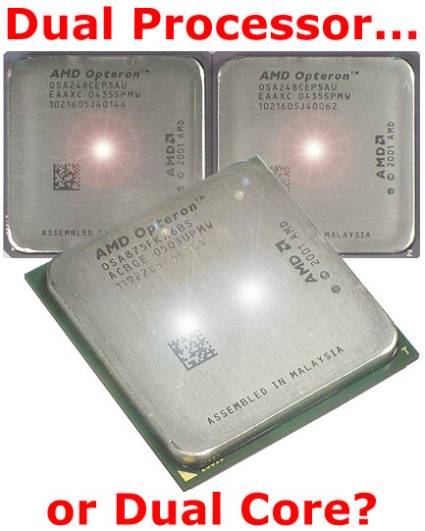Single-Core CPUs Ain't Dead Yet
Get Tom's Hardware's best news and in-depth reviews, straight to your inbox.
You are now subscribed
Your newsletter sign-up was successful
Which Is The Better Dual System?
The introduction of AMD's Athlon 64 X2 and Intel's Pentium D dual core processors will go down in the annals of semiconductor history as a revolution in processor architecture. Suddenly, the classic clock speed performance metric has been seconded by parallelism, which describes how two cores on a single chip boost performance by sharing the workload.
However, the path to parallel computing will be a long one, since the software is just not there yet. Applications are not optimized to take advantage of dual- or multi-core environments (of course, we're not talking about multi-processor platforms). In order to take advantage of multiple processing units, software needs to be based on independent threads. This allows different workload components to be distributed to all available processing units, thus cutting down the processing time more than clock speed alone can do. However, the vast majority of software has not yet been designed to harness dual- or multi-core processing capabilities.
So what processor should you buy now to future-proof your PC? We would likely recommend an entry-level dual-core processor. Yet this answer is far more complex when it comes to a high-performance system, because weighing the benefits of a single CPU dual-core machine versus a dual-processor system with two single-core chips is not so straightforward.
Get Tom's Hardware's best news and in-depth reviews, straight to your inbox.
Current page: Which Is The Better Dual System?
Next Page Premium Dual Cores Under Scrutiny
Patrick Schmid was the editor-in-chief for Tom's Hardware from 2005 to 2006. He wrote numerous articles on a wide range of hardware topics, including storage, CPUs, and system builds.
